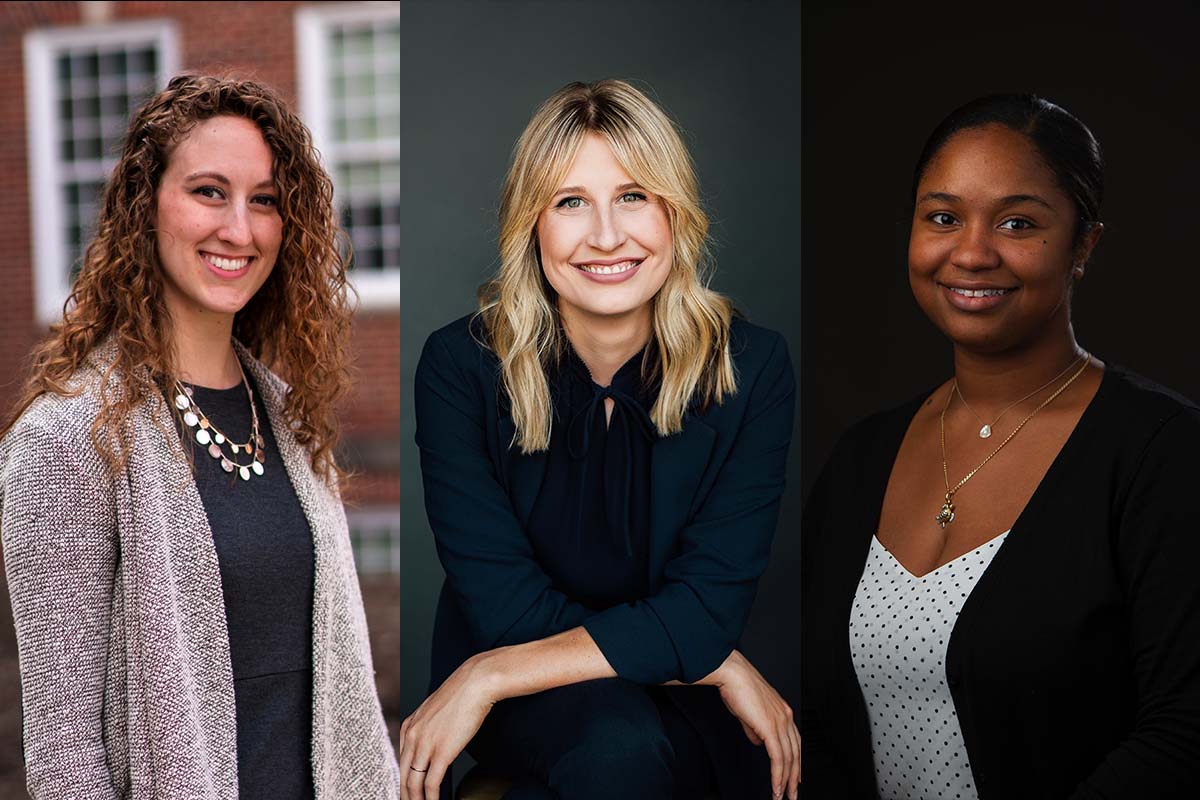UNO Researchers Measure Diversity, Equity, and Inclusion Among Omaha Organizations
- published: 2020/11/06
- contact: Brandon Bartling - University Communications
- email: unonews@unomaha.edu
- search keywords:
- Research
- DEI
- Community Engagement

Organizations throughout Omaha have work to do when it comes to creating professional environments that are inclusive and representative of the diversity of the community, according to a recent study conducted by researchers at the University of Nebraska at Omaha (UNO).
UNO Industrial/Organizational Psychology doctoral students Laura Brooks Dueland and Emily Adams, under the supervision of Carey Ryan, Ph.D., recently presented the findings at a virtual conference held as part of the Greater Omaha Chamber of Commerce’s Commitment to Opportunity, Diversity, and Equity (CODE). About 40 organizations completed the assessment used in this research, which is one of the three steps included in the CODE Employer Coalition Commitment that organizations pledge to follow.
The study found that women, people of color, and those who identify as a gender minority are underrepresented and have less positive experiences than their white male colleagues in surveyed Omaha workplaces.
Among the nearly 40 organizations who completed the survey, the study found that women and people of color are not being promoted as often as men and white employees. All other racial and ethnic groups are under-represented, in comparison with the demographics of the city, but the largest disparities occur for Black and Latinx individuals. Results also showed that those who identified as transgender, non-binary, and gender non-conforming reported less positive experiences in the workplace. Researchers said the COVID-19 pandemic is likely to only enhance such disparities.
“Marginalizing certain community members weakens our community and makes it a less attractive place to live and work,” Ryan said. “Organizations that address DEI are likely to attract diverse employees and customers. Some research indicates that organizations that make real efforts to address DEI perform better.”
“In our view, it is also simply the right thing to do.”
“Organizations that address DEI are likely to attract diverse employees and customers. Some research indicates that organizations that make real efforts to address DEI perform better. In our view, it is also simply the right thing to do.”
In addition to the findings of the study, Brooks Dueland and Adams presented potential action steps that Omaha organizations can do to make their workplaces more inclusive. For example, when it comes to hiring and promotions, organizations have an opportunity to be intentional in their recruitment practices and ensure that criteria for promotions do not systematically disadvantage certain groups.
About sixty percent of the organizations surveyed reported annual participation in training related to diversity, equity, and inclusion. However, less than a quarter of those surveyed reported implementing DEI competencies into performance evaluations.
“Diversity training can be leveraged as an employee development opportunity rather than strictly a compliance-oriented engagement,” Adams said. “There is an opportunity to integrate diversity training into other areas of talent management, though it may be ineffective if the training occurs away from the usual workplace and is not integrated into an overall DEI strategy.”
For organizations to join the CODE Coalition, they must take the Coalition Commitment, which includes three steps: Creating and implementing a comprehensive diversity and inclusion strategy, hiring or appointing diversity and inclusion leadership to develop and support efforts, and measuring success by participating in a DEI assessment. Although they may choose other assessments, the UNO assessment was provided to the coalition members for free and allowed organizations to compare their results to that of their community.
The organizations that participated in the assessment will receive reports specific to them and will be given an opportunity to meet with a DEI consultant, courtesy of the Greater Omaha Chamber, to identify where the greatest opportunities are for their organization to be more inclusive. In general, however, researchers reported that some of the best practices for representational advancement are to ensure all criteria are strictly job-relevant and that care is taken to recruit from diverse sources.
The assessment used in the study was developed by graduate students in the I/O Psychology program, under the guidance and supervision of Carey Ryan, Ph.D. and was administered by Emily Adams, Laura Brooks Dueland, and Danielle Crawford. As additional organizations within the Omaha community take the pledge to make DEI more of a focus, researchers will have more data to work with and be able to track changes in representation at participating organizations over time.
About the University of Nebraska at Omaha
Located in one of America’s best cities to live, work and learn, the University of Nebraska at Omaha (UNO) is Nebraska’s premier metropolitan university. With more than 15,000 students enrolled in 200-plus programs of study, UNO is recognized nationally for its online education, graduate education, military friendliness and community engagement efforts. Founded in 1908, UNO has served learners of all backgrounds for more than 100 years and is dedicated to another century of excellence both in the classroom and in the community.
Follow UNO on Facebook, Twitter (X), Instagram, TikTok, LinkedIn, and YouTube.